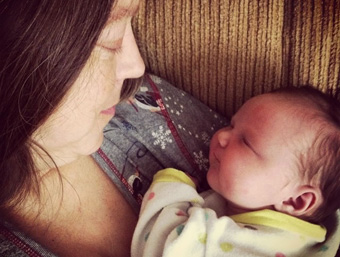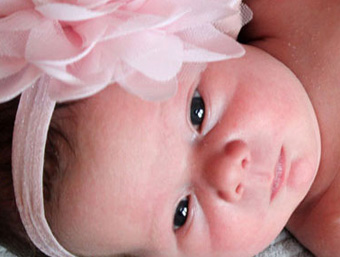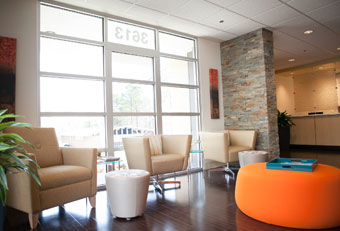Is pregnancy possible after an endometrial ablation and tubal reversal?

This article explains the concerns regarding pregnancy and endometrial ablation and offers advice for women who have previously had endometrial ablations and who may be considering reversing their tubal ligation.
Endometrial Ablations
Most women who have an endometrial ablation will have their periods resume within the first five years. Often their periods will not be as heavy as before the endometrial ablation.
It is common for periods to resume, because it is difficult to either damage, eradicate, or remove the entire uterine lining. The endometrium which is often left behind will respond to hormones produced by the ovaries, will grow and shrink as hormonal levels change, and will be released from the uterus every month if pregnancy does not occur. This residual endometrium is responsible for the return of periods which is often seen after an ablation procedure.
There are no medical treatments which will make your uterine lining regrow because you can not regenerate what has been removed by an ablation. If pregnancy will happen it will have to happen with the uterine lining which remains after the initial ablation procedure.
Can You Get Pregnant After Endometrial Ablation?
Pregnancy is very possible after an endometrial ablation. Most doctors want you to have a permanent method of birth control (either tubal ligation or vasectomy) before they perform an endometrial ablation because of the real possibility of pregnancy after the procedure.

Many of these pregnancies are unintentional in women who were not using a permanent back-up method, but some of the pregnancies were intentional from IVF and tubal ligation reversal.
All pregnancies after ablation should be considered high risk but a significant number will do well with minimal complications.
Pregnancy Risks After Endometrial Ablation
The key to understanding the risk of pregnancy after an ablation is understanding the ablation destroys or damages both the uterine lining and the adjacent uterine muscle. The soft uterine lining is responsible for the heavy periods but is also required for pregnancy implantation and placental attachment. The uterine muscle contains the blood supply that nourishes the pregnancy.
The ablation not only damages the soft uterine lining but it also causes scarring of the muscle and the blood vessels underneath the uterine lining. So if there is no lining left the pregnancy will likely not implant. If implantation occurs then there can be risk of miscarriage, fetal growth problems, or overly adherent placentas.
Risk Of Pregnancy After Ablation
One main risk of pregnancy after ablation is recurrent, early miscarriage because the pregnancy does not have an acceptable place to attach in the uterine cavity. Another risk of ablation is intrauterine growth restriction and still birth because the pregnancy may not get a healthy blood supply during early development and will grow smaller or not grow at all. Lastly the placenta may be overly adherent to the uterine muscle (because the soft uterine lining is not present) and the placenta may not easily release itself after birth. This condition increases the risk during actual delivery of the pregnancy, could cause more bleeding, and may increase the risk of needing an additional operation ( D and C or hysterectomy) to remove the severely attached placenta.
Our previous article, Reversing Endometrial Ablation And Tubal Ligation, discusses some of the medical literature which looked at pregnancy outcomes in women who became pregnant after endometrial ablation. The findings of these studies showed pregnancies after ablation were at increased risk but a substantial 40% of all pregnancies were normal and without any major issues.
Reversing Tubes After Ablation
If a women is having regular menstrual periods after an endometrial ablation and wants to consider reversing her tubes we have created an approach to reversing tubes after endometrial ablation. To be considered a tubal reversal candidate after having an ablation procedure, it is critical a woman be having regular periods.

This allows direct evaluation of the uterine lining and identification and treatment of any intrauterine scar tissue that could be present after the ablation.
If the uterine lining appears healthy and intrauterine scar tissue is removed then tubal reversal is more likely to be successful.
There is no way to completely eliminate all risk to pregnancies after an previous endometrial ablation and all pregnancies after reversal should be considered higher risk. It is critical patients also have high risk ob gyns who can follow them very closely during pregnancy.
We have created this approach to help women who desire pregnancy after ablation and we carefully select those women who are most likely to be successful at becoming pregnant.
For additional information about tubal reversal interested readers should call (919) 968-4656 to speak with a Tubal Reversal Nurse.









